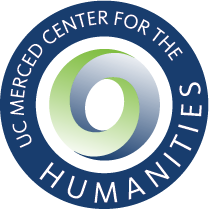
Laura Grindstaff is Professor of Sociology at UC Davis and a faculty affiliate in Gender Studies, Cultural Studies, and Performance Studies. Her research and teaching focus primarily on American media and popular culture. She employs qualitative methods to study the role of popular culture in everyday life, especially how young people use popular culture to express and negotiate gender, race, and class identities. Her ethnographic studies of media include the award-winning The Money Shot: Trash, Class, and the Making of TV Talk Shows (University of Chicago Press), and a series of essays on the production of "ordinary celebrity" in contemporary reality programming. Grindstaff has also published widely on the topic of gender, sport, and cheerleading. She is co-editor of the Handbook of Cultural Sociology (Routledge), former organizer of the annual Davis Feminist Film Festival (2008-2015), and a current board member of the nonprofit community organization, Davis Media Access. Grindstaff is originally from London, Ontario (Canada). She holds a Master’s degree in Journalism from the University of Western Ontario and a PhD in Sociology and Gender Studies from UC Santa Barbara.
My area of expertise is American popular culture. Popular culture is broad territory, encompassing everything from theatre, film, and television to music, sports, fashion, and social media. Popular culture is important because our engagement with it structures everyday life: we are defined in part by what we choose to buy, watch, wear, and read, by the games we play, the images we aspire to, and the labels we adopt or resist. To study popular culture is to study who we are -- as individuals, communities, and a society. My goal as a scholar is to neither celebrate nor condemn popular culture, but to understand its social significance, especially the ways in which popular culture, and peoples’ use of popular culture, challenges and/or sustains inequalities of race, gender, class, and sexuality. My approach to research is qualitative and interpretive. I typically aim to combine the analysis of existing texts (e.g., films, television shows, newspapers, blogs, twitter feeds, etc.) with the analysis of texts that I generate myself (e.g., transcripts and fieldnotes) via ethnographic methods such as interviewing and participant observation.













